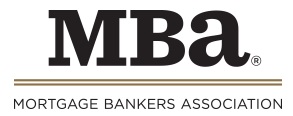WASHINGTON, D.C. (November 7, 2018) – (RealEstateRama) — Mortgage applications decreased 4.0 percent from one week earlier, according to data from the Mortgage Bankers Association’s (MBA) Weekly Mortgage Applications Survey for the week ending November 2, 2018.
The Market Composite Index, a measure of mortgage loan application volume, decreased 4.0 percent on a seasonally adjusted basis from one week earlier to the lowest level since December 2014. On an unadjusted basis, the Index decreased 2 percent compared with the previous week. The Refinance Index decreased 3 percent from the previous week. The seasonally adjusted Purchase Index decreased 5 percent from one week earlier to the lowest level since November 2016. The unadjusted Purchase Index decreased 1 percent compared with the previous week and was 0.2 percent lower than the same week one year ago.
“Rates increased slightly last week, as various job market indicators showed a bounce back in job gains and an acceleration in wage growth in October. The survey’s 30-year fixed-rate, at 5.15 percent, was the highest since April 2010,” said Joel Kan, MBA’s associate vice president of economic and industry forecasts. “Application activity decreased over the week for both purchase and refinance applications, with the overall market index down to its lowest level since December 2014. The purchase index declined to its lowest level since November 2016, but remained only slightly below the same week a year ago. It’s evident that housing inventory shortages continue to impact prospective homebuyers this fall.”
The refinance share of mortgage activity decreased to 39.1 percent of total applications from 39.4 percent the previous week. The adjustable-rate mortgage (ARM) share of activity increased to 7.8 percent of total applications.
The FHA share of total applications decreased to 10.1 percent from 10.3 percent the week prior. The VA share of total applications increased to 10.1 percent from 9.8 percent the week prior. The USDA share of total applications remained unchanged from 0.7 percent the week prior.
The average contract interest rate for 30-year fixed-rate mortgages with conforming loan balances ($453,100 or less) increased to 5.15 percent from 5.11 percent, with points increasing to 0.51 from 0.50 (including the origination fee) for 80 percent loan-to-value ratio (LTV) loans. The effective rate increased from last week.
The average contract interest rate for 30-year fixed-rate mortgages with jumbo loan balances (greater than $453,100) increased to 4.97 percent from 4.94 percent, with points decreasing to 0.27 from 0.28 (including the origination fee) for 80 percent LTV loans. The effective rate increased from last week.
The average contract interest rate for 30-year fixed-rate mortgages backed by the FHA increased to 5.15 percent from 5.08 percent, with points increasing to 0.64 from 0.62 (including the origination fee) for 80 percent LTV loans. The effective rate increased from last week.
The average contract interest rate for 15-year fixed-rate mortgages remained unchanged at 4.55 percent, with points remaining unchanged at 0.51 (including the origination fee) for 80 percent LTV loans. The effective rate increased from last week.
The average contract interest rate for 5/1 ARMs increased to 4.36 percent from 4.33 percent, with points decreasing to 0.35 from 0.42 (including the origination fee) for 80 percent LTV loans. The effective rate remained unchanged from last week.
If you would like to purchase a subscription of MBA’s Weekly Applications Survey, please visit www.mba.org/WeeklyApps, contact or click here.
The survey covers over 75 percent of all U.S. retail residential mortgage applications, and has been conducted weekly since 1990. Respondents include mortgage bankers, commercial banks and thrifts. Base period and value for all indexes is March 16, 1990=100.
CONTACT
Adam DeSanctis
(202) 557-2727


